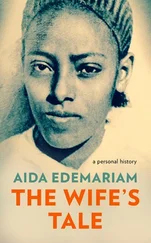Writing from Antwerp on 2 August, Benjamin told Sarah that ‘the hostess’ at Ghent had seemed ‘particularly desirous to give us a specimen of her cookery and there was a mysterious delay. Enter the waiter. A fricandeau , the finest I ever tasted, perfectly admirable, a small and very delicate roast joint, veal chops, a large dish of peas most wonderfully fine, cheese, a dessert, a salad pre-eminent even among the salads of Flanders which are unique for their delicate crispness and silvery whiteness…Cost only six francs, forming one of the finest specimens of exquisite cookery I ever witnessed.’
In Antwerp, the travellers stayed at the Grand Laboureur where there was unfortunately no table d’hôte, but they enjoyed ‘capital private feeds…the most luxurious possible’. ‘And my mother’, he added, ‘must really reform her table before our return. I have kept a journal of dinners for myself, and in doings in general for my father, so I shall leave the account of churches, cathedrals and cafés till we come home…love to Mère and all, Your affectionate Brother, B. Disraeli.’
‘The dinner was good,’ he added after describing with enthusiasm the pictures by Rubens in the Museum at Antwerp. ‘The Grand Laboureur is un hôtel pour les riches . The vol au vent of pigeons was admirable. The peas were singularly fine.’ The table d’hôte at the Belle Vue in Brussels was equally commendable – ‘dinner excellent – frogs – pâté de grenouilles – magnificent! – sublime’. He was most thankful that the English at the table d’hôte in Brussels shared a ‘vulgar but lucky prejudice against frogs. So had the pâté to myself,’ he recorded in his journal. ‘Eat myself blind.’ At Mechlin, the ‘oysters were as small as shrimps but delicately sweet’. ‘We always put up at the crack hotels,’ he wrote from Mainz, ‘and live perfectly en prince . The Governor allows us to debauch to the utmost, and Hochheimer, Johannisberg, Rudesheimer, Assmansshauser and a thousand other varieties are unsealed and floored with equal rapidity.’ At Frankfurt, the ‘Gâteau de Pouche’ was ‘superb beyond conception’. 5
Occasionally Disraeli’s accounts of their travels were more than a little facetious. Describing their crossing by steamer to Ostend, he writes: ‘We had a very stiff breeze, and almost every individual was taken downstairs save ourselves who bore it all in the most manly and magnificent manner…The Governor was quite frisky on landing, and on the strength of mulled claret, etc., was quite the lion of Ostend…We rode on the Spa ponies to the distant springs…The Governor was particularly equestrian…I have become a most exquisite billiard player…Meredith and I talk French with a mixture of sublimity and sang-froid perfectly inimitable.’ 6
The sketches he provided for Sarah of individuals his party came across in their travels are more entertaining. He tells her, for instance, about an Irish tourist ‘who would have made an inimitable hero for [the comedian, Charles] Mathews. It was his first debut on the Continent, and, with a most plentiful supply of ignorance and an utter want of taste…I met him two or three times afterwards in different places, and his salutations were exceedingly rich. It was always “How do you do, Sir. Wonderful city this, Sir, wonderful! Pray have you seen the Crucifixion by Vandyke, wonderful picture, Sir, wonderful picture, Sir”. ’ 7
At Darmstadt, Disraeli sees the Grand Duke at a performance of Otello . He is an ‘immense amateur’. His ‘royal box is a large pavillon of velvet and gold in the midst of the theatre. The Duke himself in grand military uniform gave the word for the commencement of the overture, standing up all the time, beating time with one hand and watching the orchestra through an immense glass with the other.’
Occasionally, the diary reveals some inner thought or emotion:
Ghent, Sunday – High Mass. A dozen priests in splendid unity. Clouds of incense and one of Mozart’s sublimest Masses by an orchestra before which San Carlo might grow pale. The effect is inconceivably grand. The host raised and I flung myself on the ground. 8
In another entry in his journal he wonders if German beggars would prove to be even more tiresome than Belgian ones: ‘But the traveller is well trained in Flanders…for your carriage never leaves an inn yard without a crowd of supplicating attendants and three old women, a dozen young ones, half a dozen men and all the children of the village attending you on your whole journey. The old women seem to have the best breath.’
There is, in the diary, a rare political observation. ‘The Belgians’, he wrote, ‘seem extremely hostile against the Dutch. It may be questioned whether, in case of a war, they may not rebel against the present authorities.’
This seems to have been the first comment of its kind that he made. He had not at that time seriously considered a career in politics. He had, however, come to one decision that was to upset ‘the Governor’: ‘I determined when descending those magical waters [of the Rhine] that I would not be a lawyer.’ ‘The hour of adventure had arrived. I was unmanageable.’ 9
Although determined not to return to the office in Frederick’s Place, or to go up to Oxford as his father had wanted him to do, Benjamin, on his return to London, did submit to his father’s wishes by not abandoning his legal training altogether: he followed Meredith in reading for the bar at Lincoln’s Inn. But he did not relish the thought of becoming a barrister any more than he had taken to the idea of becoming a solicitor. ‘Pooh!’ he has his character Vivian Grey say. ‘Pooh! THE BAR! Law and bad jokes till we are forty, and then, with the most brilliant success, the prospect of gout and a coronet. Besides, to succeed as an advocate, I must be a great lawyer, and, to be a great lawyer, I must give up my chance of being a great man.’ 10And, as though to emphasize his rejection of the idea of becoming successful as an advocate, he appeared one day in the Old Square chambers of his precise and pedantic cousin, Nathaniel Basevi, with a copy of Edmund Spenser’s Faerie Queene prominently displayed.
He was soon to decide that ‘in England personal distinction is the only passport to the society of the great. Whether the distinction arises from fortune, family or talent is immaterial; but certain it is, to enter high society, a man must either have blood, a million or be a genius.’ He also decided that he himself must have both ‘ Riches and Power ’.
On his return to England Disraeli had found London’s financial houses and moneyed classes excited by that prospect of making such fortunes as they had hoped to do at the time of the fever of speculation resulting in the financial crisis known as the South Sea Bubble in 1720. On this later occasion, the excitement arose from the perceived opportunity of acquiring great riches from the exploitation of the gold and silver mines of South America and the profits to be derived from such companies as the Columbian Mining Association, the Chilean Mining Association and the Anglo-Mexican Mining Association which were promoted by John Powles, a persuasive merchant banker of rather dubious reputation whom Disraeli had come across while working in Frederick’s Place and who appears as the character Premium in Vivian Grey . ‘It immediately struck me’, Disraeli was later to say, ‘that, if fortunes were ever to be made, this was the moment and I accordingly paid great attention to American affairs.’
He threw himself into the business of acquiring a fortune with almost demonic energy. Although he had so very little money of his own, he bought shares in South American companies on credit, and further shares on John Murray’s behalf. The value of the shares increased enormously; but Disraeli declined to take an immediate profit in the hope of making yet more money; and then, inevitably, the share prices fell dramatically. Disraeli, however, remained optimistic and he wrote an anonymous and seriously misleading pamphlet, published by Murray, contradicting gloomy reports that drew a parallel between the present speculation and the South Sea Bubble. He produced accounts claiming that both he and John Murray had made handsome profits. He hoped to make more with money borrowed from both his uncle, George Basevi, and Robert Messer, the son of a rich stockbroker.
Читать дальше











